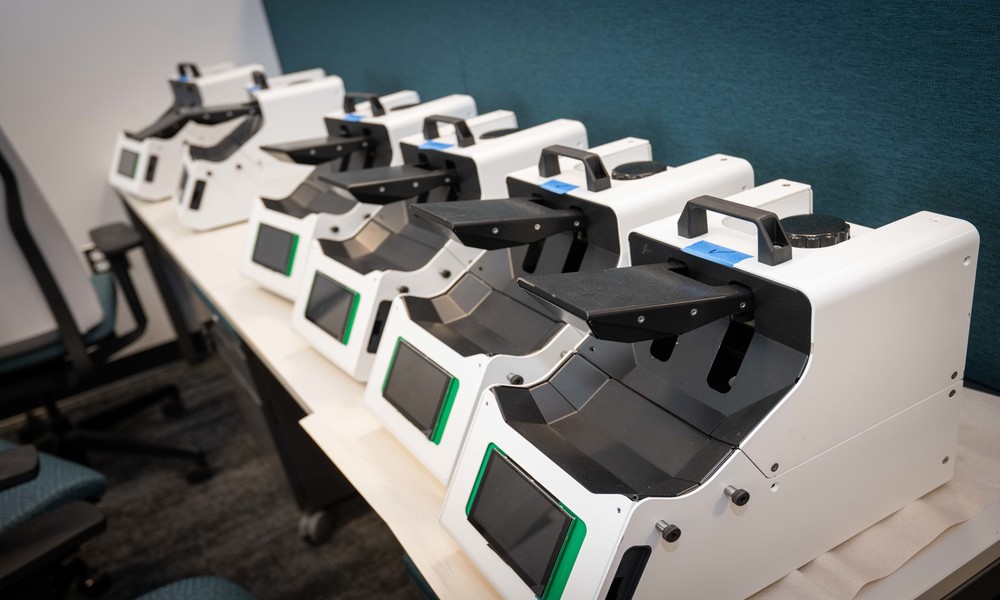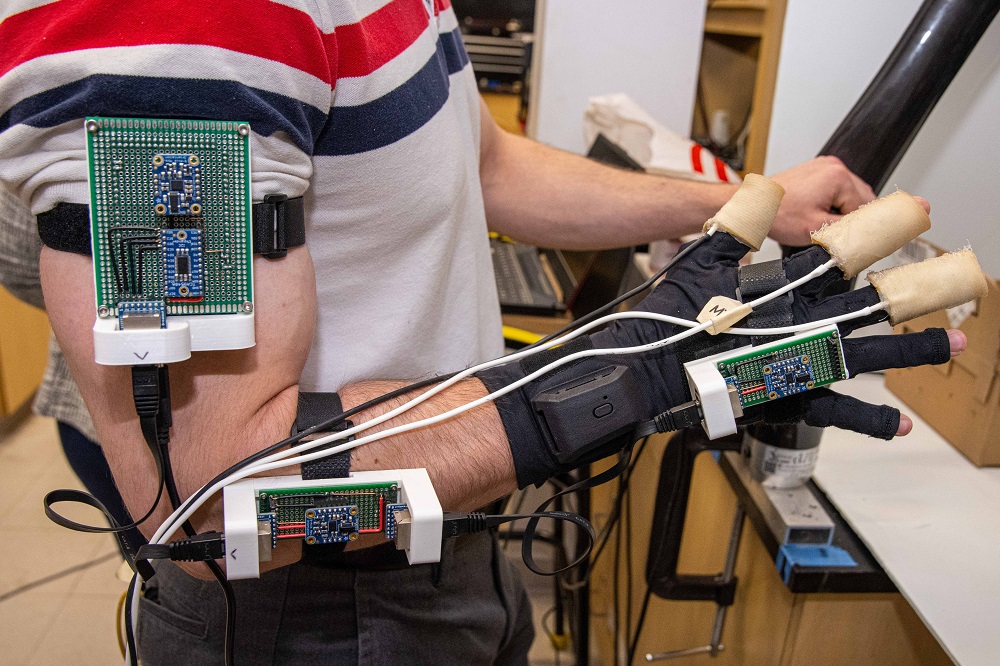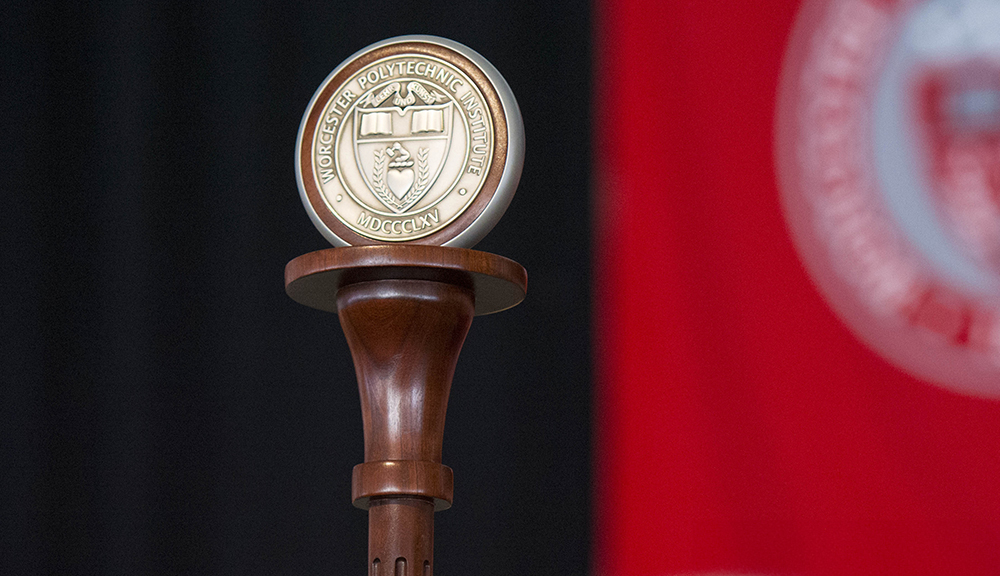This is WPI’s inaugural year hosting, after two years in Boston. “This is a natural fit for us,” says Patricia Stapleton, director of WPI’s Society, Technology, and Policy Program, and coordinator of Fishackathon. With many faculty and students working on or interested in sustainability issues, the idea of combining WPI’s technological strengths with real world applications is appealing, she says, and opens many future research possibilities.
The WPI Fishackathon’s winning app tackled the enormous task of tracking fishing vessels. According to the winning project’s website, DevPost, the “SUSHEE” app “is an Android and web application designed to provide law enforcement officials with centralized access to data about fishing vessels. SUSHEE is short for “Scraping Unsearchable Sources to Halt Environmental Exploitation,” which was inspired by the chaotic state of fishing vessel data across dozens of databases.”
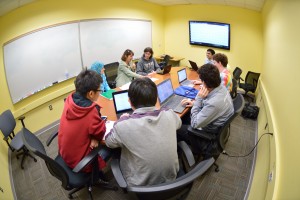 Interest in Fishackathon is growing. Six host sites held events worldwide the first year and that number doubled the second year. This year, 40 sites hosted. As the only host site in New England, Fishackathon hosted about nine students, although three dozen preregistered. Coming in the same time frame as final projects, Stapleton said time constraints likely played a big role in the gap.
Interest in Fishackathon is growing. Six host sites held events worldwide the first year and that number doubled the second year. This year, 40 sites hosted. As the only host site in New England, Fishackathon hosted about nine students, although three dozen preregistered. Coming in the same time frame as final projects, Stapleton said time constraints likely played a big role in the gap.
Students compete for smaller prizes at the local events (for best-looking app or sharpest design), and each winning local entry is then submitted into the global competition for the top cash prize of $10,000, sponsored by Virgin Group. With a collaborative and innovative approach, teams are encouraged to upload their work even if it’s not selected to move on to the global competition. The global winner will be announced on June 8, World Oceans Day.
The Fishackathon atmosphere is encouraging and collaborative, and Stapleton says this year’s students showed that clearly. Students formed into three original teams, but then combined into one team to create the strongest possible submission. Instead of a typical hackathon where students choose what to work on, the Fishackathon participants picked from nine State Department-issued problem statements to develop an app. In past years, anyone was able to upload a problem statement, leading to lots of creativity, but diluted solutions.
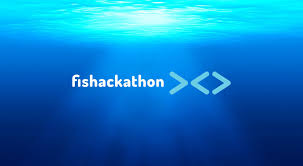 Some of the problem statements are focused on specific geographical areas and others are more global in scope, says Stapleton. For instance, recovering lost fishing gear might seem like a local problem, but it’s an issue that fisheries around the world deal with. Other problem statements address issues related to fish identification and tracking, fishing vessel data, and compliance with marine laws and regulations.
Some of the problem statements are focused on specific geographical areas and others are more global in scope, says Stapleton. For instance, recovering lost fishing gear might seem like a local problem, but it’s an issue that fisheries around the world deal with. Other problem statements address issues related to fish identification and tracking, fishing vessel data, and compliance with marine laws and regulations.
For WPI’s students, the Fishackathon reflects all they experience in WPI’s curriculum. The intense, hands-on work blends the theory and practice so pervasive at WPI. “What they are working on at WPI is not just about having the technical experience but the real world implication, especially when they see the real-world impact,” says Stapleton.
“Fishackathon and similar events provide an opportunity to learn about problems the world is facing that you may not otherwise encounter,” says winning team member Maryann O’Connell ’17. “Prior to the event, I was unaware of the complex issues we are facing globally in regards to fishing. By participating in Fishackathon, I was able to have fun developing software while contributing to a worthwhile cause.”
Darrien Glasser, a University of Massachusetts-Lowell student who participated says the event raised his own awareness about the current chaotic state of data collection.
“As the core Android developer, one of the biggest challenges I faced was constantly having to adapt the UI and search algorithms to account for changing data sources,” he says. “There were 28 sources for data, all with their own standards and formats, and creating a common, intuitive layout was difficult.”
Stapleton says she received great feedback. “One of our technical judges said he was really impressed with what they were able to accomplish in such a short amount of time,” says Stapleton. “So I’m hopeful that our host site’s submission will be competitive in the global competition.”
– BY JULIA QUINN-SZCESUIL
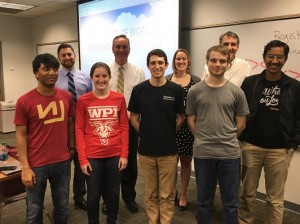 Coding and saving the fishing industry don’t seem like obvious allies, but the third annual Fishackathon, held at WPI April 22 to 24, proved otherwise.
Coding and saving the fishing industry don’t seem like obvious allies, but the third annual Fishackathon, held at WPI April 22 to 24, proved otherwise.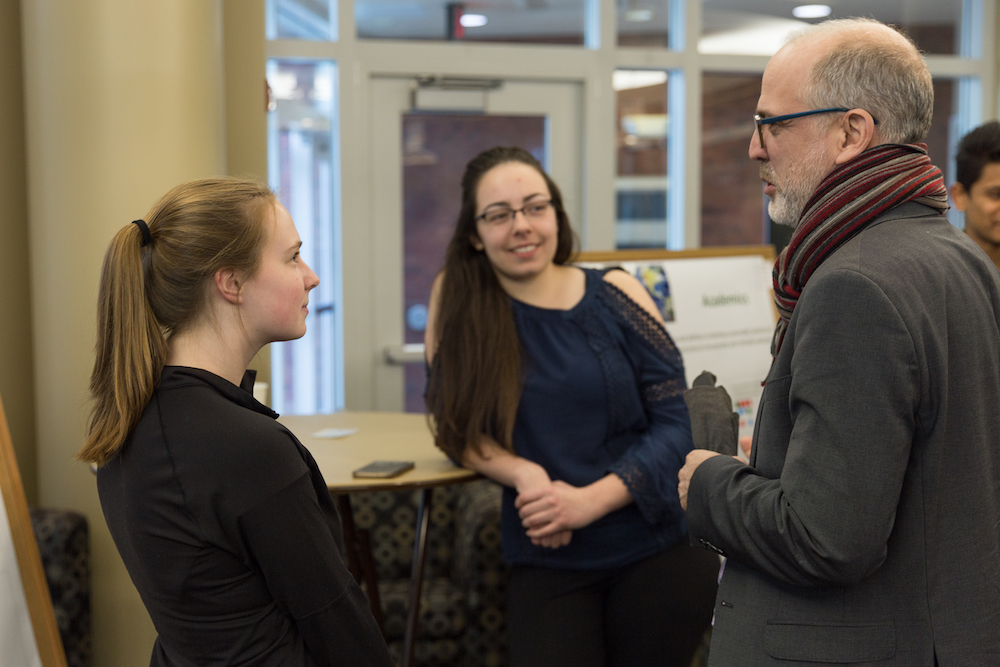
 Interest in Fishackathon is growing. Six host sites held events worldwide the first year and that number doubled the second year. This year, 40 sites hosted. As the only host site in New England, Fishackathon hosted about nine students, although three dozen preregistered. Coming in the same time frame as final projects, Stapleton said time constraints likely played a big role in the gap.
Interest in Fishackathon is growing. Six host sites held events worldwide the first year and that number doubled the second year. This year, 40 sites hosted. As the only host site in New England, Fishackathon hosted about nine students, although three dozen preregistered. Coming in the same time frame as final projects, Stapleton said time constraints likely played a big role in the gap. Some of the problem statements are focused on specific geographical areas and others are more global in scope, says Stapleton. For instance, recovering lost fishing gear might seem like a local problem, but it’s an issue that fisheries around the world deal with. Other problem statements address issues related to fish identification and tracking, fishing vessel data, and compliance with marine laws and regulations.
Some of the problem statements are focused on specific geographical areas and others are more global in scope, says Stapleton. For instance, recovering lost fishing gear might seem like a local problem, but it’s an issue that fisheries around the world deal with. Other problem statements address issues related to fish identification and tracking, fishing vessel data, and compliance with marine laws and regulations.